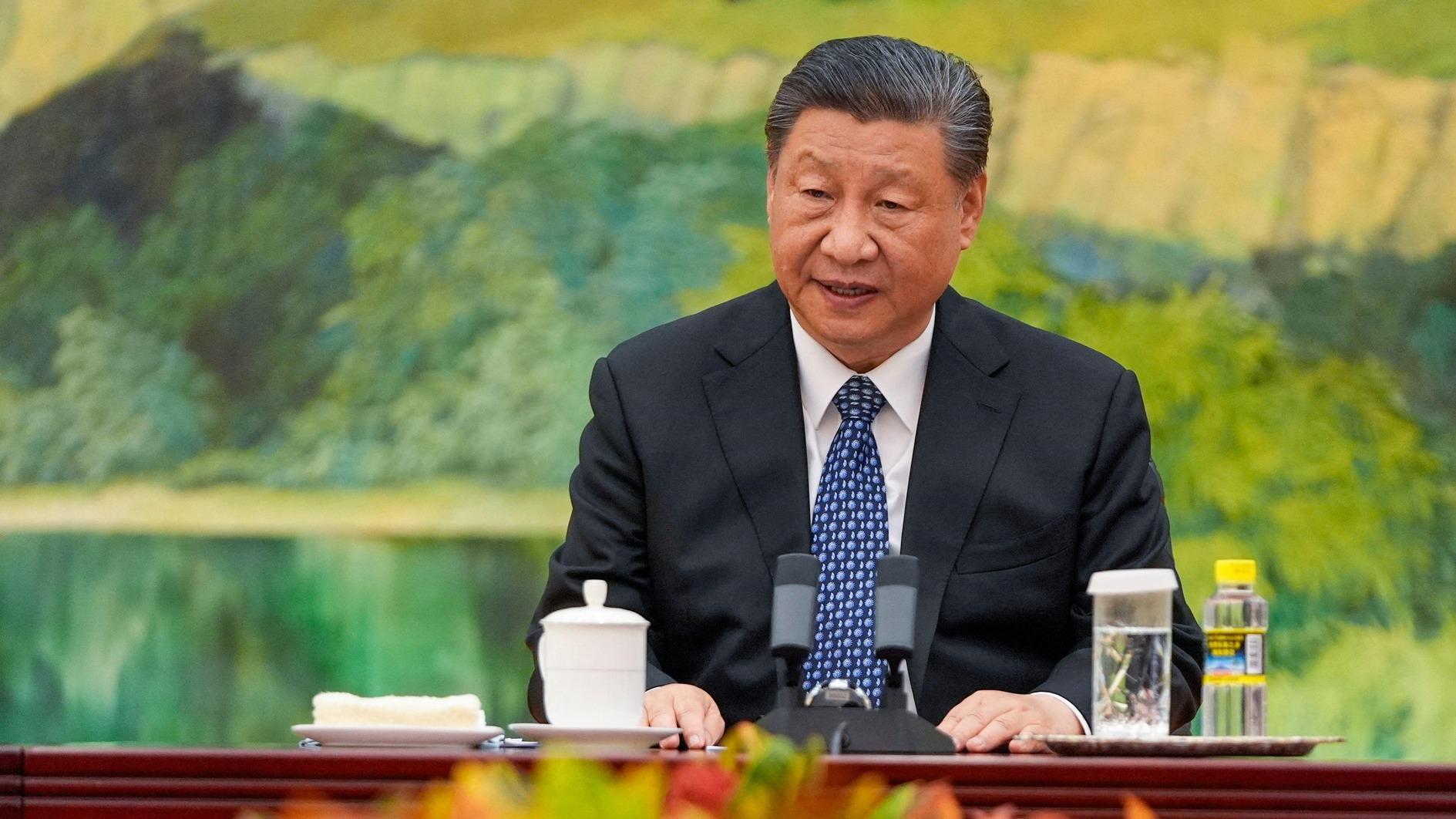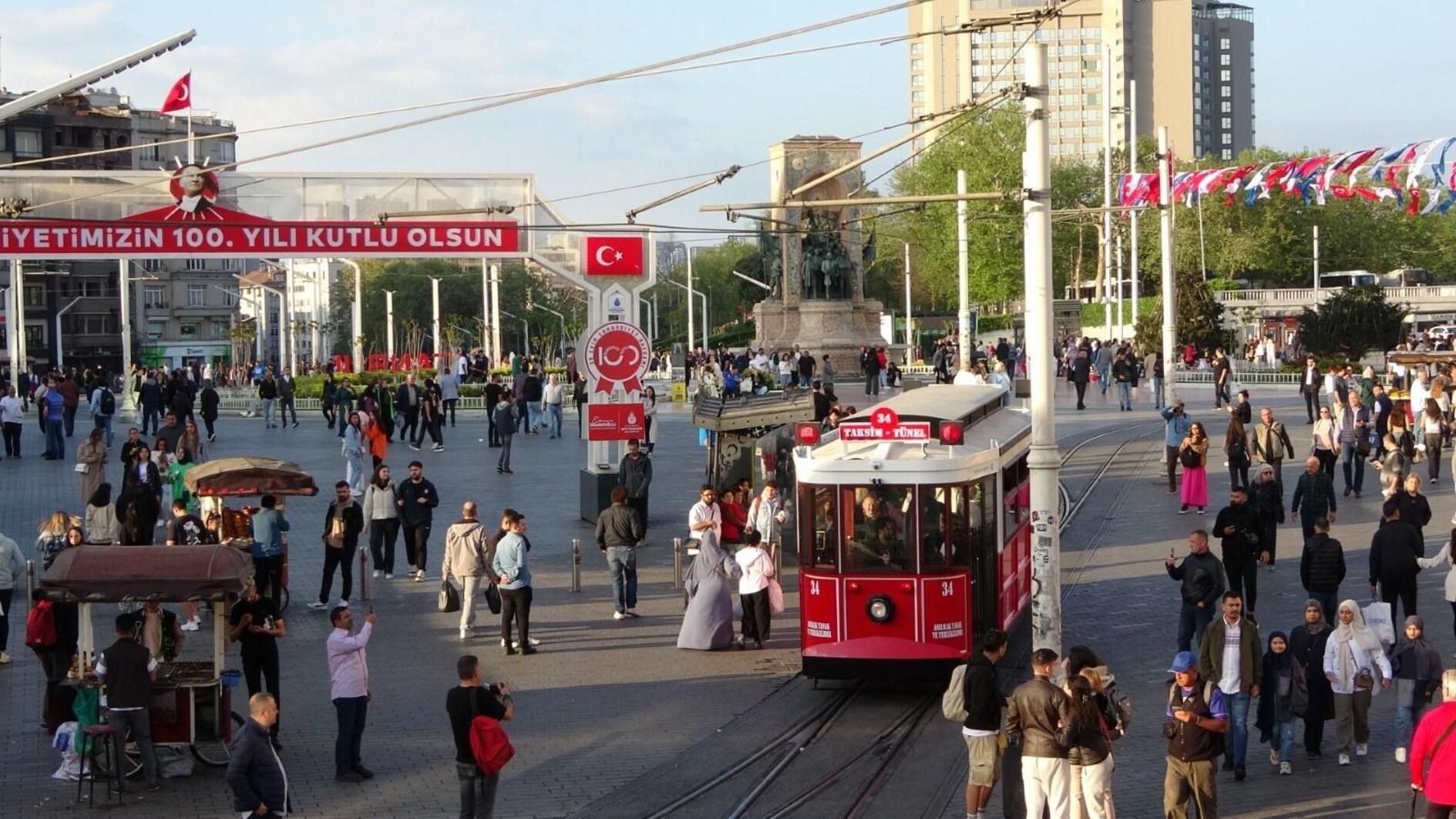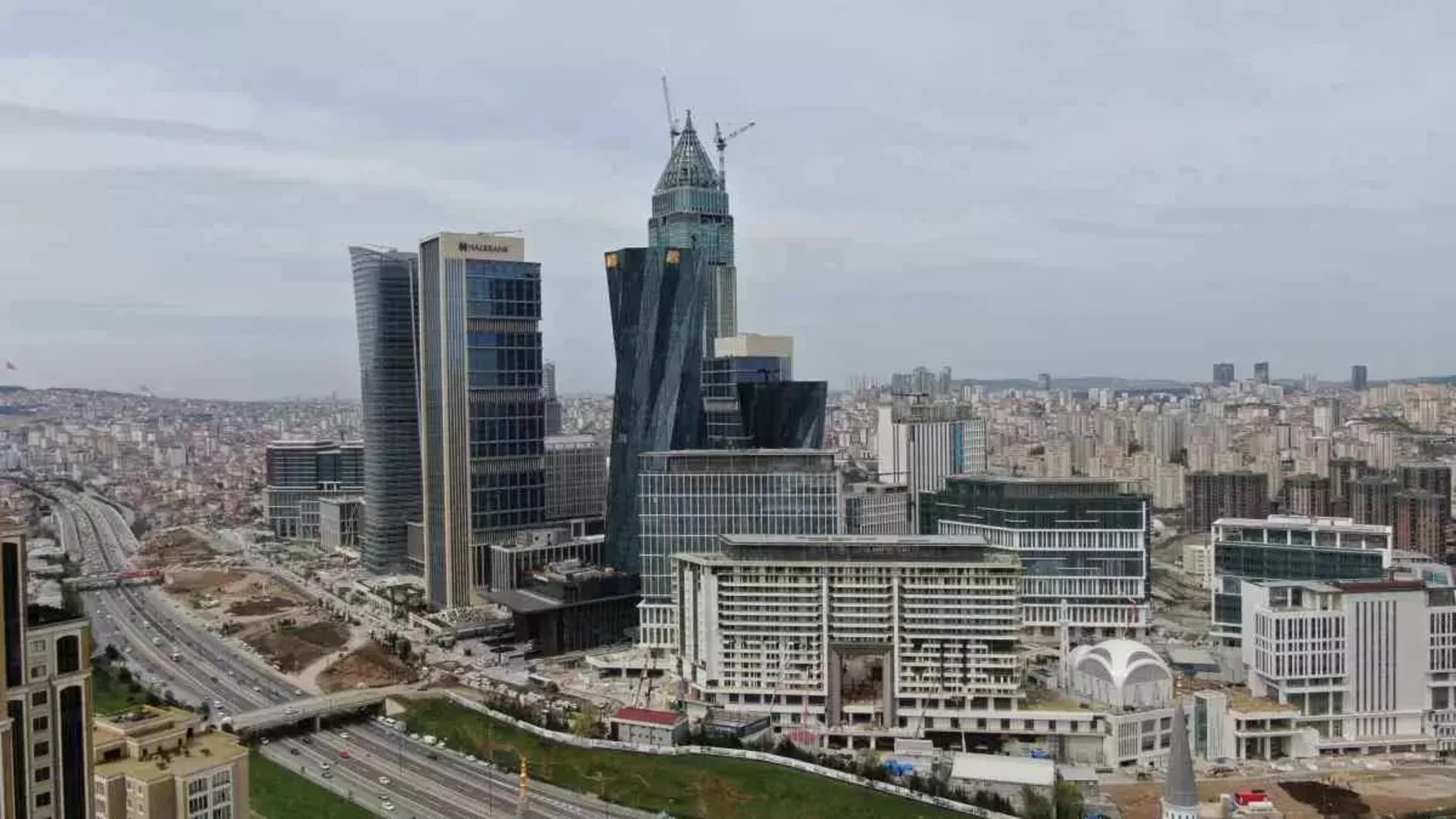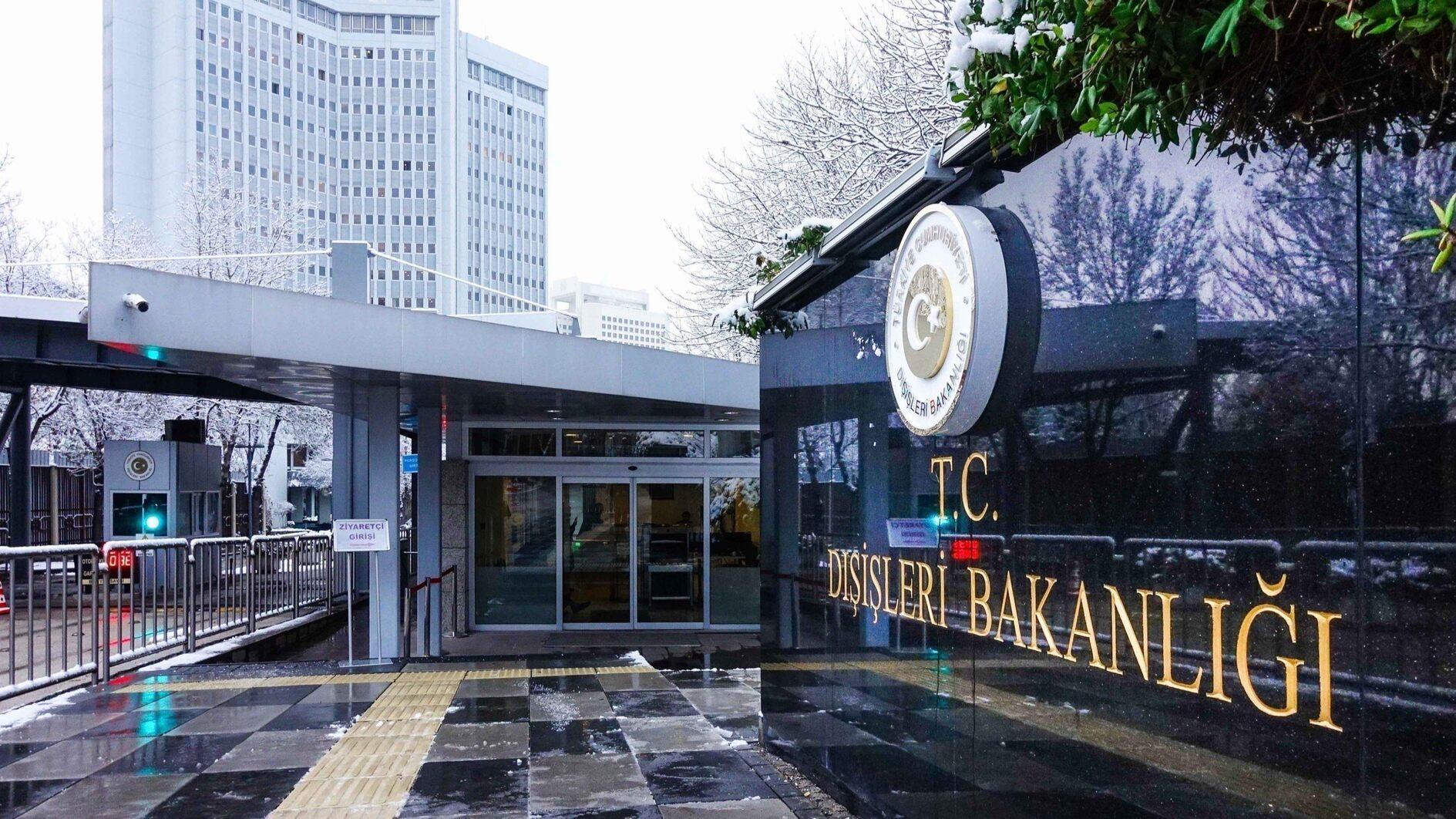Kerry seeks to mend frayed ties with Saudi Arabia
RIYADH - Agence France-Presse
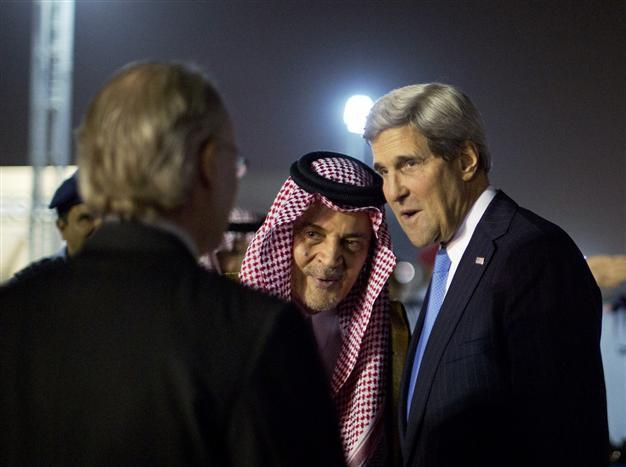
U.S. Secretary of State John Kerry is escorted by Saudi Foreign Minister Prince Saud Al-Faisal bin Abdulaziz al-Saud, as Kerry arrives in Riyadh, Saudi Arabia. AP photo
Secretary of State John Kerry was Monday to meet Saudi King Abdullah in a high-profile bid to mend US ties with its key Gulf ally amid tensions over American policy on Syria and Iran.His talks, scheduled for later in Riyadh, come a day after the top US diplomat vowed the United States would stand by its friends as they navigate the turmoil unleashed by the Arab Spring.
The political upheaval sweeping parts of the Middle East has witnessed the rise of powerful new extremist groups in Libya and Syria, with Iran accused of fomenting unrest to aid Syrian President Bashar al-Assad in his 31-month battle against rebel forces.
Saudi Arabia, locked in a decades-long rivalry with Iran, is concerned that proposed Syrian peace talks could leave a Tehran-backed regime in Damascus and that a breakthrough in nuclear negotiations could also lead to a US rapprochement with its arch foe.
"We will be there for Saudi Arabia, for the Emirates, for Qataris, for the Jordanians, for the Egyptians and others. We will not allow those countries to be attacked from outside. We will stand with them," Kerry told reporters Sunday, during a brief visit to Cairo.
His comments came at the start of an 11-day trip which has become an exercise in damage control, as the regional turbulence unleashed by the Arab Spring stirs tensions with longtime US partners.
Saudi Arabia has grown increasingly nervous as popular revolts have toppled onetime allies in Egypt, Tunisia and Yemen.
In an unprecedented move last month, the conservative oil-rich kingdom turned down a coveted non-permanent seat on the UN Security Council in protest at the world body's failure to end the war in Syria, which has killed more than 120,000 people.
In Cairo, Kerry acknowledged that while there might be differences over "tactics" in ending the Syrian conflict, the goal for the United States and its allies was the same -- a transition of power.
The US has been pressing Syria's opposition to attend the Geneva peace talks with the Assad regime, slated for late November.
And it won the support of the Arab League, which meeting late Sunday in Cairo said it would "encourage" the Syrian opposition to attend the talks aimed at ushering in a transitional government.
Syria's opposition has refused to attend unless Assad's resignation is on the table -- a demand Damascus rejects. "The minsters are asked today to provide all the support to the (opposition Syrian) National Coalition in order to encourage it to participate in Geneva II," Arab League chief Nabil al-Arabi said.
Kerry's visit comes at the start of a key week, with talks scheduled in Geneva in the coming days on trying to fix a date for the Syria peace talks and a new round of nuclear negotiations between six world powers and Iran.
Kerry was to first hold talks Monday with Saudi Foreign Minister Saud al-Faisal, before a palace meeting with the king for their first dialogue since he became secretary of state.
The main opposition National Coalition plans to meet on November 9 to decide whether to attend the Geneva talks, but the Syrian National Council, a key member of the bloc, has threatened to quit if it does so.
And Coalition chief Ahmed al-Jarba urged the Arab League to "take a clear decision on the delivery of weapons to the Syrian rebels," adding "we are ready to provide all the guarantees that they would not fall into wrong hands".
Saudi Arabia has also eyed warily international moves to engage Iran on its nuclear programme following the election of President Hassan Rouhani, a reputed moderate who held a landmark phone call with US President Barack Obama in September.
"They're very clear about their concerns," a senior State Department official said, adding the US remained "clear-eyed" about the challenges ahead.
Iranian negotiators are due to hold a new round of talks with Western powers, dubbed the P5+1, in Geneva on Thursday and Friday.
Analysts said while ties between the US and Saudis are strained at the moment they are unlikely to break completely.
"Despite the Saudi outcry, the bedrock of US and Saudi ties -- intelligence coordination and military containment of Iran -- is solid," wrote Frederic Wehrey, senior associate in the Middle East program at the Carnegie Endowment for International Peace.



